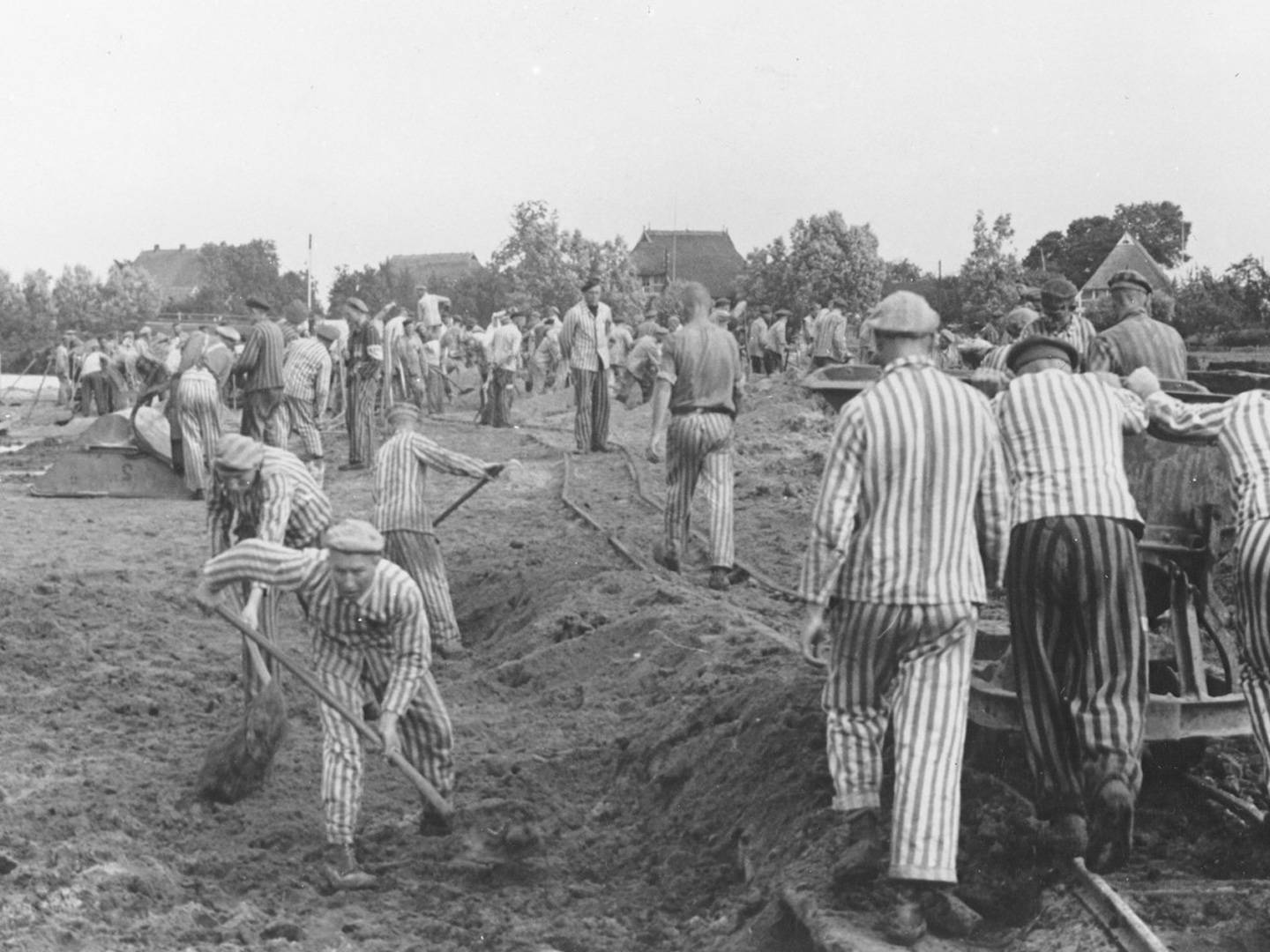Functionary prisoners
A functionary prisoner, also called a kapo in camp jargon, was a concentration camp prisoner who was elevated to a leading position by SS members. With the kapos, the SS created a system of self-government in the camps.
“Kapos would grab their victims from other commandos and beat them with sticks or other implements of torture. They became experts at aiming for the parts of the body that would feel the greatest pain. In revenge, one kapo would strike at another kapo’s worker, and vice versa.”
– Israel I. Cohen about abuses
Functionary prisoners were used for camp administration among other things. They worked in the kitchen, for the magazine, the clothing room and writing rooms.
As labour supervisors, kapos were responsible for ensuring the smooth running of work crew processes. This included preventing attempted escapes and reporting delays.
Another leading position was occupied by the block senior. They had to make sure that the morning arrangements took place according to the SS instructions, that beds were made and prisoners appeared at roll call. On an evening, the Block Senior supervised the serving of meals, assigned new concentration camp prisoners and reported those who were missing.
Highest in the pecking order was the Camp Senior – often with two representatives – who supervised the other kapos and was answerable to the SS. He therefore served as a main link between oppressors and the oppressed.
The SS guard expected the kapos to unquestionably enforce their commands, and they were thus awarded for taking a particularly brutal and strict approach against their fellow prisoners. If tasks were not adequately fulfilled in the eyes of the SS, the kapos were to expect harsh punishments, dismissal and even death. Regardless of this, survivors reported about some functionary prisoners who helped their fellow prisoners.
My Block Senior, who the Germans held responsible for 50 men from our barracks, was an orthodox Jew from Hungary. He had his nephew with him of almost the same age. This boy served as a “messenger” between the headquarters, secondary camps and the kapos. He was a small tyrant and feared by all prisoners, because he had the suspect ability to imitate almost everything the Germans did. He beat and tortured his fellow prisoners who were unable to defend themselves. Thanks to my acquaintance with his uncle, he left me in peace.
– Jakob Bresler about functionary prisoners


